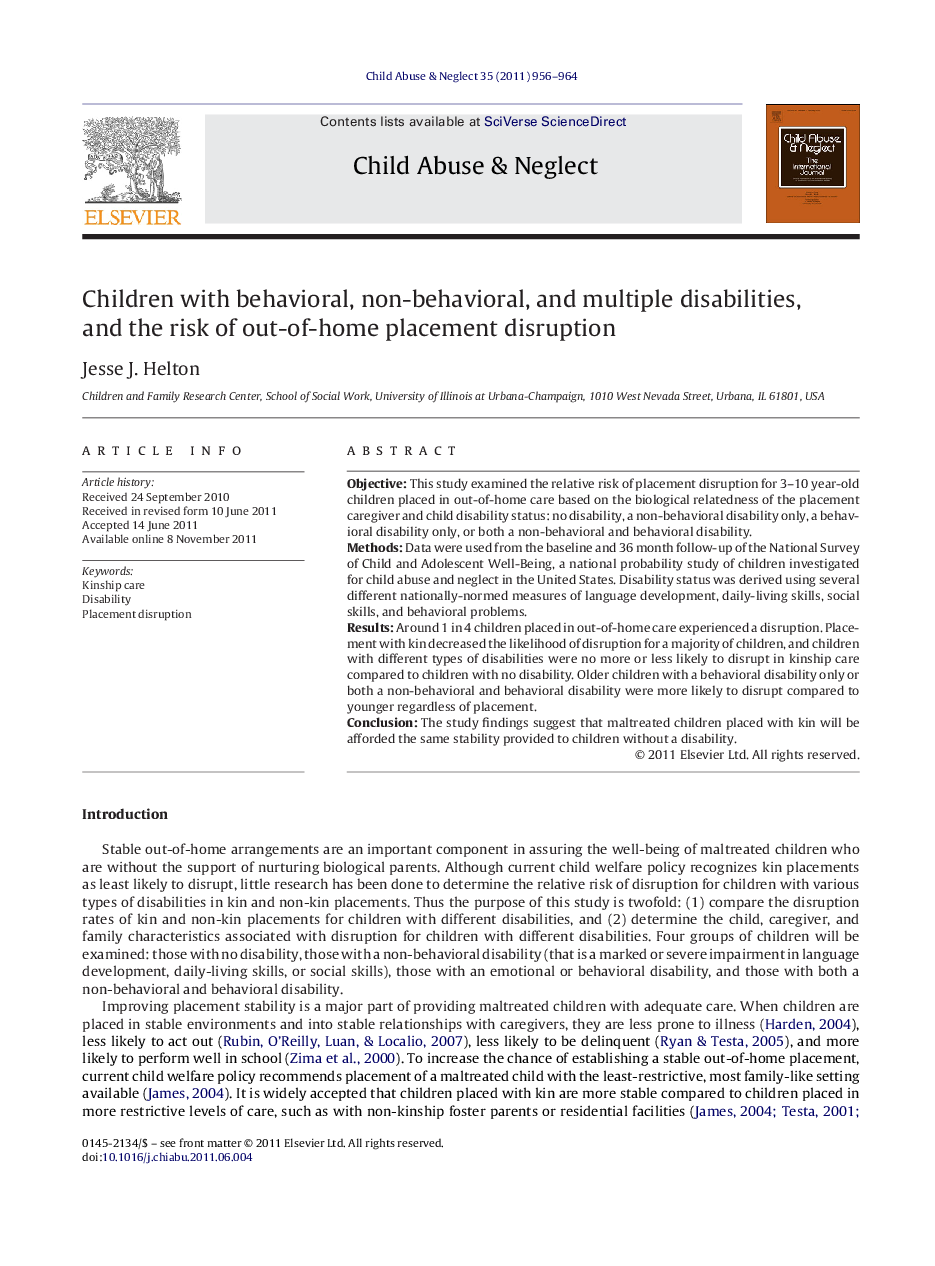| Article ID | Journal | Published Year | Pages | File Type |
|---|---|---|---|---|
| 345035 | Child Abuse & Neglect | 2011 | 9 Pages |
ObjectiveThis study examined the relative risk of placement disruption for 3–10 year-old children placed in out-of-home care based on the biological relatedness of the placement caregiver and child disability status: no disability, a non-behavioral disability only, a behavioral disability only, or both a non-behavioral and behavioral disability.MethodsData were used from the baseline and 36 month follow-up of the National Survey of Child and Adolescent Well-Being, a national probability study of children investigated for child abuse and neglect in the United States. Disability status was derived using several different nationally-normed measures of language development, daily-living skills, social skills, and behavioral problems.ResultsAround 1 in 4 children placed in out-of-home care experienced a disruption. Placement with kin decreased the likelihood of disruption for a majority of children, and children with different types of disabilities were no more or less likely to disrupt in kinship care compared to children with no disability. Older children with a behavioral disability only or both a non-behavioral and behavioral disability were more likely to disrupt compared to younger regardless of placement.ConclusionThe study findings suggest that maltreated children placed with kin will be afforded the same stability provided to children without a disability.
